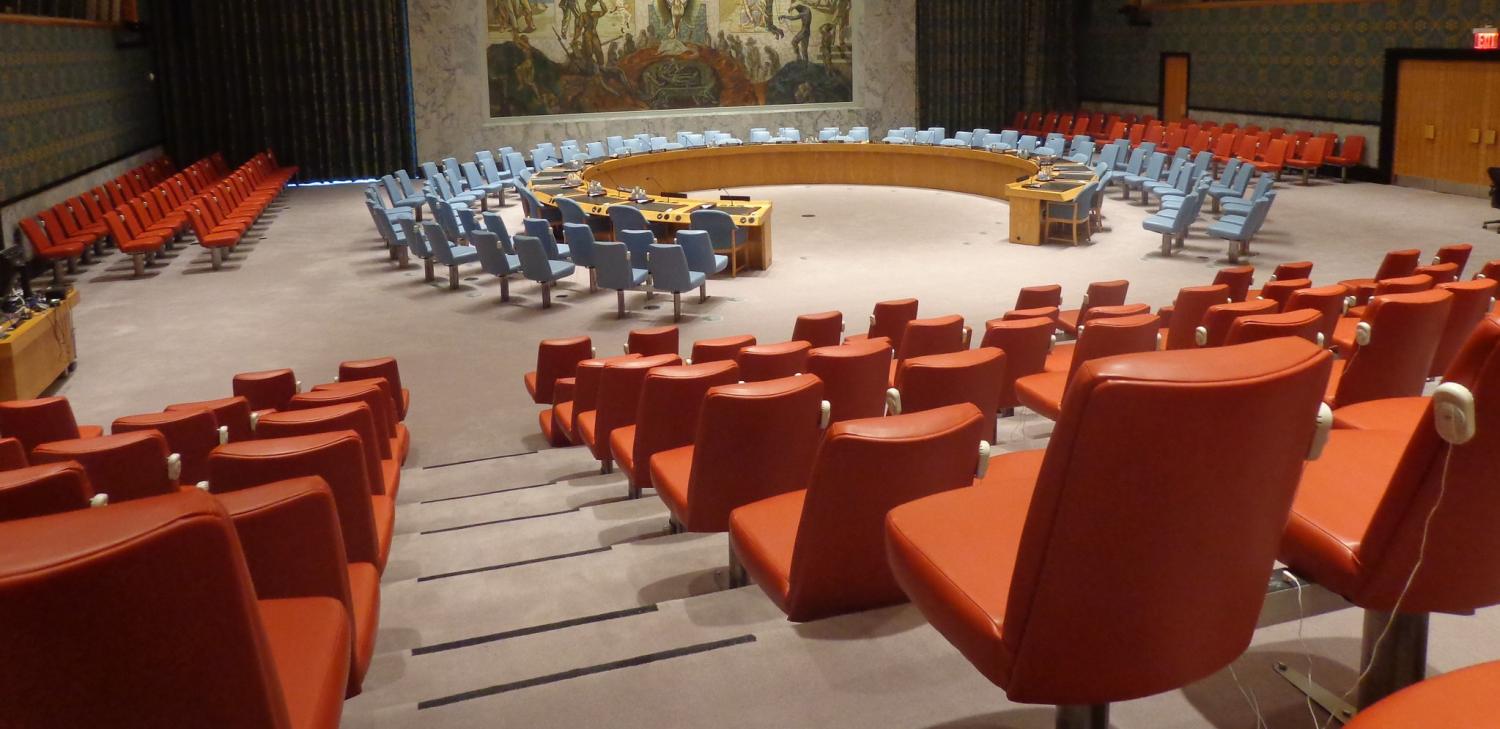The UN Security Council has unequivocally failed the Syrian people: over 400,000 of whom have been killed, over 5 million of whom are refugees, and around 6.3 million of whom are internally displaced.
The recent resignation Carla del Ponte from the UN Commission of Inquiry on Syria is just the latest in a long line of UN officials who have quit their positions out of frustration with the lack of meaningful progress, on either peace or justice. Del Ponte, however, has directly singled out the culprit: the UN Security Council.
She said that she had expected 'to persuade the Security Council to do something for justice'. But, in the seven years of the Commission, 'nothing happened…we are going nowhere'.
In all likelihood, justice will not be served, at least in the short- or medium-term. In contrast to the relatively rapid establishment of International Criminal Courts for Yugoslavia and Rwanda, the case of Syria has yet to be opened. It remains to be seen whether either a war crimes tribunal or International Criminal Court (ICC) referral will be initiated by the Security Council. It is possible that long into the future (similar to the case of Cambodia, where the Khmer Rouge are only now being tried for crimes committed in the 1970s), a process may be initiated.
The failure of the UN Security Council to do something for justice on this occasion is part of a broader failure.
The Council failed to prevent and then failed to respond. The dynamics on the ground and in New York have never been conducive to any meaningful action, either before or after the fact. If the Council was to have fulfilled its mandate to prevent the conflict, then it is likely that Article 2(7), non-interference in the domestic affairs of a member-state, would have been invoked.
By the time the then-Under Secretary-General for Political Affairs B Lynn Pascoe briefed the Council on the situation on 27 April 2011, it was arguably too late. Major protests began in mid-March, and the cycle of violence had been initiated. Once a conflict is in motion and escalates to the point of armed insurrection, an international council of 15 in New York is unlikely to effect a solution. If the powerful member-states are not interested (and therefore unwilling to expend diplomatic capital) and/or not aligned, the chances are even less.
Kofi Annan's six-point plan; the deployment of the short-lived observer mission (United Nations Supervision Mission in Syria); the push for humanitarian access; and the establishment of the OPCW-UN Joint Mission in Syria. These were all well-meaning mechanisms. But the Council has remained largely on the sidelines, adopting only a handful of resolutions, many of which remain dead-letters (the Council was not even responsible for the creation of the mission of the UN Special Envoy to Syria – a post filled by Annan, Lakhdar Brahimi, and currently occupied by Staffan de Mistura).
I have studied the Council for the best part of a decade (I wrote my PhD on the topic of Council agency). Early on in my work I came to understand a rather self-evident fact – that whenever the Council membership is not unified, the Council cannot be effective. There are no exceptions.
On Syria, the Council has been deadlocked. In all, a total of eight vetoes have been exercised on the matter of Syria. On six of these draft resolutions, both Russia and China have vetoed in tandem.
The first series of vetoes (cast in October 2011 and February 2012) blocked resolutions that contained condemnatory statements and threatened sanctions against the Assad regime.
In July 2012, a vetoed resolution would have imposed sanctions on the Assad regime if it did not cease troop movements and the use of heavy weaponry in and around population centres.
In May 2014, another veto was cast that blocked a resolution on the referral of the situation in Syria to the ICC.
In October and December of 2016, the Council attempted to pass two resolutions regarding the situation in Aleppo. One draft condemned the regime and the other sought to establish a cease-fire to allow humanitarian access for a seven-day period.
The two most recent vetoes have concerned chemical weapons proliferation and the Khan Sheikhoun gas attacks in April of this year. The first draft attempted to sanction the elements within the regime for the production and use of chemical weapons, while the second draft condemned the regime for the Khan Sheikhoun and called for an investigation.
If these resolutions were adopted would the situation be different? The trajectory of Council action may have been different without Russian and Chinese obstructionism. But it is likely that these vetoed resolutions would not have brought about peace in Syria. This begs the question: should we temper expectations of the Security Council? In the modern era, is it possible for an institution built by states for states to solve a labyrinthine conflict played out by myriad local and regional players?
The case of Syria highlights the limits of global governance mechanisms in the face of complex situations. It is still premature to give up on the UN Security Council but, if it is to remain relevant in the future, it must perform better. Let's hope Syria is its nadir.

